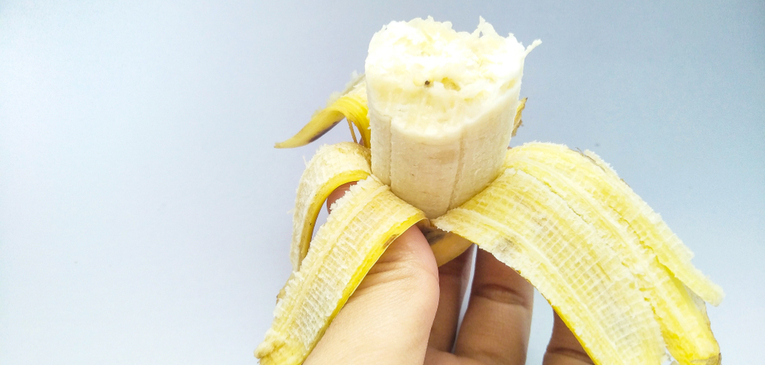Publicidade
Publicidade
Publicidade
Publicidade

A banana é uma das frutas que não pode faltar no cardápio do corredor; aliás, na rotina de qualquer atleta. Além de todos os benefícios para a saúde que o fruto oferece, e de toda a versatilidade em diversas receitas, a banana também é uma alternativa para prevenir aquela dor pós-treino, conhecida por dor muscular tardia (DMT).
É o que sugere um novo estudo publicado no PLOS One. A banana é boa para a recuperação muscular, pois, além de repor os nutrientes gastos durante o exercício, a fruta também combate a inflamação muscular.
O estudo foi realizado na Appalachian State University com 20 ciclistas. Cada um deles pedalou 75 km diários durante duas semanas. Em um primeiro momento, consumiram banana e água; no outro, bebidas açucaradas (como os isotônicos).
Tanto as bebidas isotônicas quanto a banana foram eficientes na recuperação, mas a fruta teve um plus: os exames apontaram 18 tipos de metabólitos no sangue dos ciclistas após o consumo da banana. O que isso significa? Segundo o autor da pesquisa, David Nieman, essas substâncias foram capazes de inibir o gene COX2, um dos responsáveis por causar dor muscular (a DMT). Inclusive, o gene COX2 é onde os medicamentos analgésicos atuam, como o ibuprofeno e a aspirina.
Para os atletas que costumam usar remédios, segundo o cientista autor do estudo, anti-inflamatórios não esteroides, como estes acima citados, podem inflamar ainda mais o organismo e atrapalhar a evolução do condicionamento físico. Além disso, o consumo em excesso podem prejudicar o coração e a potência sexual.
Ou seja, na próxima vez que a planilha de treino mudar, ou você exagerar um pouco no exercício e sentir aquela dor pós-treino, já sabe: coma mais bananas.
Gostou da ideia? Veja 5 receitas diferentes com banana
Compartilhar link